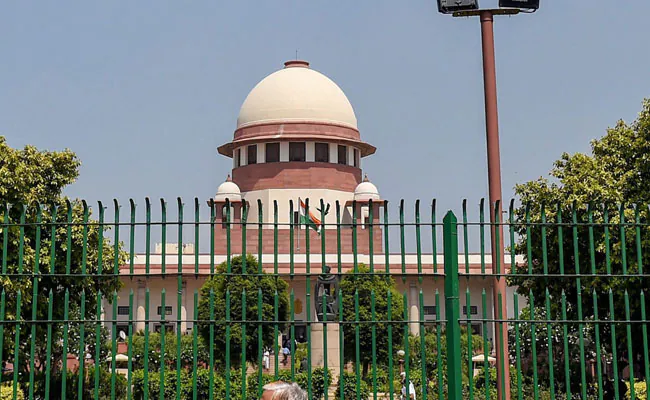For NEET UG aspirants, one of the most advantageous approaches to preparation lies in solving JEE Main papers, particularly in the subjects of Chemistry and Physics. While both examinations have their unique formats and purposes, there is a significant overlap in their syllabi. This intersection offers a strategic advantage for students aiming for proficiency in multiple disciplines. By working through JEE Main papers, candidates can familiarize themselves with various question types, which aids in developing a versatile problem-solving skill set.
The consistent practice of JEE Main problems also helps in grasping the exam pattern, which is essential for effective preparation. Questions often require a strong understanding of core concepts, and by engaging with these papers, students can identify common themes and topics that frequently recur in examinations. This knowledge is beneficial not only for mastering Chemistry and Physics but also for enhancing overall analytical thinking. The experience garnered from tackling complex problems enhances confidence for the actual NEET UG examination.
Time management is another vital skill honed through the resolution of JEE Main questions. High-stakes exams like NEET and JEE require candidates to efficiently allocate their time across various sections. Approaching JEE Main papers enables students to practice pacing themselves, ensuring that they can complete their actual exams within the specified time limits. The air of pressure surrounding competitive examinations often leads to anxiety; however, the familiarity gained from solving these papers can significantly reduce stress levels during the actual exam.
As shared by AIR 24 topper, the integration of JEE Main problem-solving into their study regimen presented not only conceptual clarity but also strategic mastery of time management, which ultimately contributed to their success in NEET UG. Understanding the importance of JEE Main papers reinforces a tailored approach to preparation, ensuring that NEET UG aspirants can navigate their path to success with confidence and competence.
Effective Strategies for Solving JEE Main Papers
To excel in the JEE Main examinations, particularly in the Chemistry and Physics sections, students must adopt effective strategies for solving the question papers. One of the foremost techniques recommended by the AIR 24 topper is breaking down complex questions into manageable parts. This method enables students to tackle even the most challenging problems systematically. Begin by identifying the key components of a question, such as the core concepts involved, before attempting to solve it. By doing so, students can reduce the cognitive load and focus on solving each part one at a time.
Another valuable technique is quickly identifying and utilizing key concepts. Familiarity with the syllabus is crucial; students should revise frequently to ensure that they can recognize important principles and formulas during the examination. A well-structured revision plan helps solidify this knowledge, facilitating quicker recall. Additionally, practicing previous years’ papers will familiarize students with the types of questions often posed, greatly aiding in identifying recurring themes and concepts.
In the case of multiple-choice questions (MCQs), employing elimination methods can significantly enhance accuracy. Instead of attempting to find the correct answer immediately, students should first eliminate the options they confidently deem incorrect. This strategy decreases the number of choices and increases the probability of selecting the right answer, all while conserving valuable time. Moreover, maintaining accuracy is imperative; rushing through questions can lead to careless mistakes. Therefore, it is recommended to practice these strategies frequently, aiming for at least two to three full-length JEE Main papers each week. This frequency builds both confidence and proficiency, making students more adept at managing their time effectively during the actual examination.
Key Topics in Chemistry and Physics from JEE Main Perspective
For NEET UG aspirants, understanding key topics that frequently appear in both NEET and JEE Main exams is crucial for adequate preparation. Analyzing the trends from previous JEE Main papers reveals important concepts in Chemistry and Physics that candidates should prioritize. In Chemistry, chapters such as Organic Chemistry, Chemical Bonding, and Equilibrium have consistently shown high weightage. Mastering reaction mechanisms in Organic Chemistry not only aids in solving direct questions but also enhances problem-solving skills applicable in other areas of chemistry.
Additionally, in Physical Chemistry, topics like Thermodynamics and Stoichiometry are often represented, making them essential areas for focused study. Candidates are advised to approach these chapters through rigorous problem-solving and concept clarification, enabling a deeper understanding of their applications. Similarly, in Physics, heavy-weight topics include Mechanics, Thermodynamics, and Electricity and Magnetism. A thorough grasp of concepts in Mechanics, such as Newton’s Laws and conservation principles, facilitates a stronger foundation for solving complex numerical problems.
Utilizing quality study resources significantly enhances preparation for both Chemistry and Physics. It is recommended to study from NCERT textbooks as they lay a foundation for concepts that appear in NEET and JEE. In addition, reference books like H.C. Verma for Physics and O.P. Tandon for Chemistry provide an excellent amalgamation of theory and practice problems that reflect exam patterns. Online platforms such as Khan Academy and various tutoring services also offer valuable resources for reinforcing concepts and engaging with practice tests.
By focusing on these essential topics and leveraging effective study materials, aspiring NEET UG candidates can improve their performance significantly, ensuring they are well-prepared for the examination challenges ahead.
Building a Balanced Study Schedule
Creating a balanced study schedule is fundamental for students preparing for NEET UG while also incorporating JEE Main problem-solving practices. An effective strategy begins with assessing individual needs, strengths, and weaknesses in Chemistry and Physics. Students should allocate dedicated time to reviewing concepts, practicing problems, and taking mock tests to ensure comprehensive knowledge retention and skill development.
It is advisable to segment the study schedule into daily or weekly blocks, emphasizing both NEET and JEE curricula. For instance, a daily routine could include two hours of review for theoretical concepts, followed by an hour dedicated to problem solving from JEE Main papers. This structured approach encourages continuity and reinforces learned concepts while allowing students to familiarize themselves with varying question formats.
Integrating regular practice sessions is crucial. Students should set aside time at least thrice a week for intensive practice, where they explore JEE Main problems while targeting NEET topics. This dual focus not only enhances problem-solving skills but also helps in time management, a key factor during exams. Additionally, weekly mock tests must be incorporated into the regimen to assess understanding and application of concepts under time constraints.
Periodic assessment is vital for monitoring progress. After completing each topic or mock test, students should reflect on performance, identifying areas needing improvement. This iterative process allows for adjustment of study schedules as needed, cultivating a tailored approach to learning. Moreover, maintaining motivation is essential; incorporating breaks, varied study materials, and interactive learning can significantly ease stress and improve focus.
Ultimately, a balanced study schedule is about finding harmony between learning, practice, and evaluation, ensuring students can navigate confidently through both NEET and JEE preparation.





